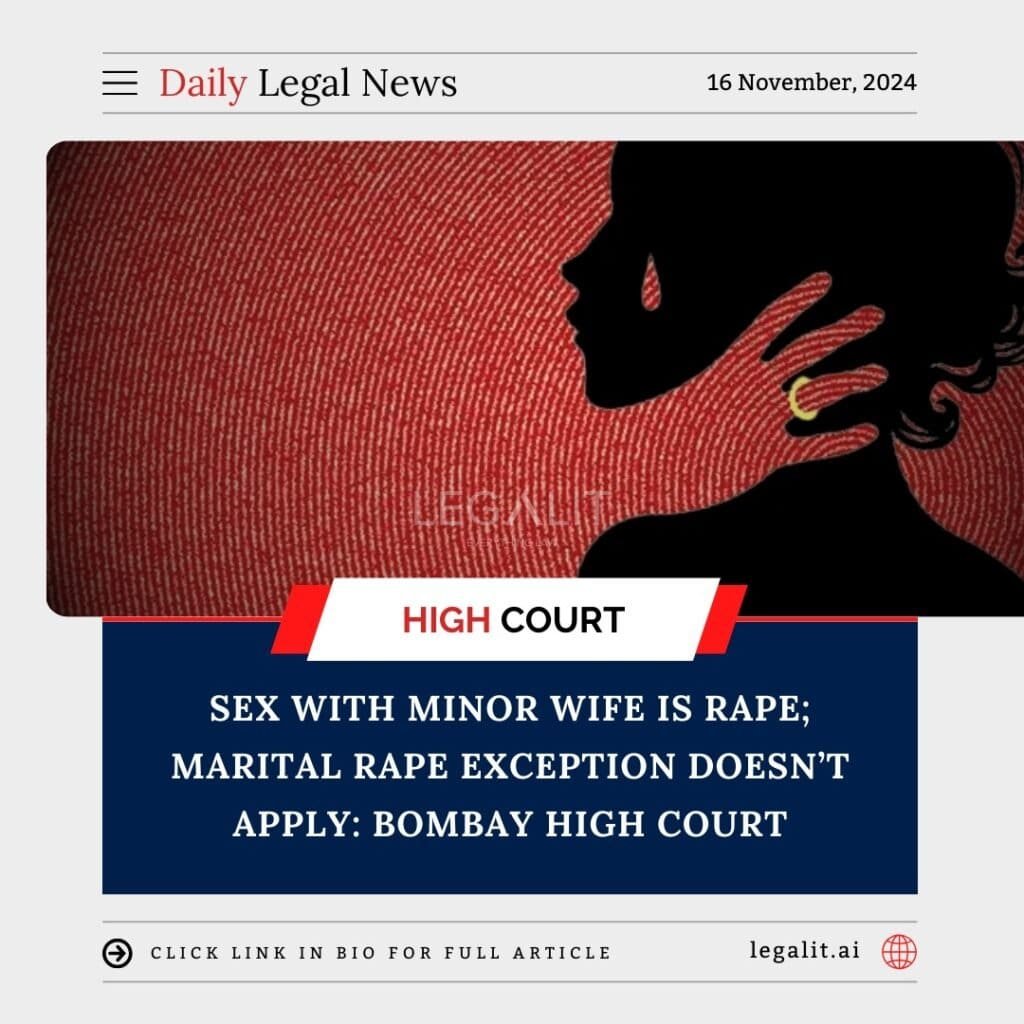
The Bombay High Court has ruled that sexual intercourse with a minor wife constitutes rape under Indian law, emphasizing that the marital rape exception in Section 375 of the Indian Penal Code (IPC) does not apply to minors.
Background:
The case arose when a man was accused of raping his 17-year-old wife. He invoked the marital rape exception, claiming immunity from prosecution for sexual acts within a marriage. The prosecution opposed this, arguing that the exception does not apply when the wife is a minor, referencing the landmark Supreme Court judgment in Independent Thought v. Union of India (2017), which clarified that sexual relations with a wife under 18 years of age are deemed rape.
Court’s Rationale:
The High Court dismissed the accused’s argument, stating that:
- Age Supersedes Marital Status: The court reiterated that the law prioritizes the protection of minors, deeming individuals below 18 incapable of providing consent for sexual activity.
- Independent Thought Case Precedent: It reaffirmed the Supreme Court’s 2017 decision, which invalidated the marital rape exception for wives under 18, aligning with the objectives of the Protection of Children from Sexual Offences (POCSO) Act.
- Child Protection Over Marriage: Marriage cannot be used as a shield to justify acts prohibited under child protection laws.
Existing Measures:
India has robust laws to protect minors from sexual exploitation, including:
- POCSO Act, 2012: Enforces stringent measures against sexual offenses involving children.
- Prohibition of Child Marriage Act, 2006: Criminalizes child marriages and associated practices.
- Supreme Court Precedent: Strengthens protections by clarifying the inapplicability of the marital rape exception to minors.
Conclusion:
This ruling reinforces India’s commitment to protecting minors from sexual exploitation, irrespective of marital status. By unequivocally applying child protection laws, the judgment sends a strong message that marriage cannot override the legal safeguards guaranteed to minors.